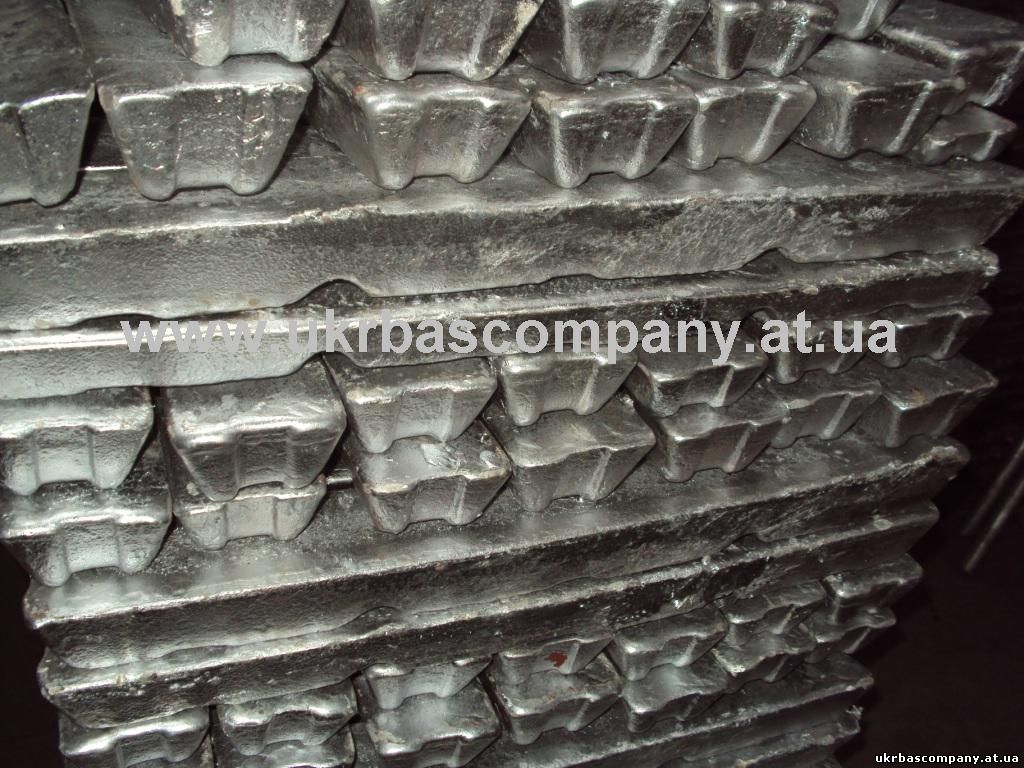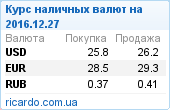
226D – AlSi9Cu3 (Fe)
DIN226D
Universal alloy with very good casting properties. Marked by less affinity to shrinkage and internal shrinkage cavities. Very good spanabiliy. Especially for die casting.
Much used universal alloy in die casting, machine and engine parts, cylinder heads, parts for electric engines, bearing blocks, casings. for electric engines, bearing blocks, casings.
Much used universal alloy in die casting, machine and engine parts, cylinder heads, parts for electric engines, bearing blocks, casings. for electric engines, bearing blocks, casings.
226D - AlSi9Cu3 (Fe) according to EN AC 46000
standard DIN-1725
standard DIN-1725
typical analysis
Si 8,0 % - 11,0 %
Fe 0,6 % - 1,1 %
Cu 2,0 % - 4,0 %
Mn < 0,55 %
Mg 0,15 % - 0,55 %
Cr < 0,15 %
Ni < 0,55 %
Zn < 1,2 %
Pb < 0,35 %
Sn < 0,25 %
Ti < 0,2 %
others separately < 0,05 %
others total < 0,25 %
typical sizes & weights
block size ca. 5,0 – 7,0 kg
packing
500 – 1000 kg bundles or to customer requirement, suitable for fork lift handling
other compositions or packing on request
Fe 0,6 % - 1,1 %
Cu 2,0 % - 4,0 %
Mn < 0,55 %
Mg 0,15 % - 0,55 %
Cr < 0,15 %
Ni < 0,55 %
Zn < 1,2 %
Pb < 0,35 %
Sn < 0,25 %
Ti < 0,2 %
others separately < 0,05 %
others total < 0,25 %
typical sizes & weights
block size ca. 5,0 – 7,0 kg
packing
500 – 1000 kg bundles or to customer requirement, suitable for fork lift handling
other compositions or packing on request
AlSi9Cu2 (Fe)
typical analysis
Si 8,0 % - 10,5 %
Fe < 1,0 %
Cu 1,0 % - 2,5 %
Mn 0,2 % - 0,8 %
Mg 0,2 % - 0,8 %
Cr < 0,15 %
Ni < 0,55 %
Zn < 1,2 %
Pb < 0,35 %
Sn < 0,25 %
Ti < 0,15 %
others separately < 0,05 %
others total < 0,25 %
typical sizes & weights
block size ca. 5,0 – 7,0 kg
packing
500 – 1000 kg bundles or to customer requirement, suitable for fork lift handling
other compositions or packing on request
Fe < 1,0 %
Cu 1,0 % - 2,5 %
Mn 0,2 % - 0,8 %
Mg 0,2 % - 0,8 %
Cr < 0,15 %
Ni < 0,55 %
Zn < 1,2 %
Pb < 0,35 %
Sn < 0,25 %
Ti < 0,15 %
others separately < 0,05 %
others total < 0,25 %
typical sizes & weights
block size ca. 5,0 – 7,0 kg
packing
500 – 1000 kg bundles or to customer requirement, suitable for fork lift handling
other compositions or packing on request
230D – AlSi12(Fe)
DIN230D
Eutectic alloy with excellent fillability, high hot tearing resistance and excellent castability at high chemical resistance.
As 231D, but for parts which are more subjected to oscillation and corrosion (pump cases, impellers, finned parts).
As 231D, but for parts which are more subjected to oscillation and corrosion (pump cases, impellers, finned parts).
230D - AlSi12 (Fe) according to EN AC 44300
typical analysis
Si 10,5 % - 13,5 %
Fe 0,45 % - 0,9 %
Cu <0,08 %
Mn < 0,55 %
Mg < 0,05 %
Cr < 0,05 %
Ni < 0,05 %
Zn < 0,15 %
Pb < 0,05 %
Sn < 0,05 %
Ti < 0,15 %
others separately < 0,05 %
others total < 0,25 %
typical sizes & weights
block size ca. 5,0 – 7,0 kg
packing
500 – 1000 kg bundles or to customer requirement, suitable for fork lift handling
other compositions or packing on request
231D – AlSi12Cu1(Fe)
DIN231D
Eutectic alloy with excellent fillability, high hot tearing resistance and excellent castability.
As 226D, but better suited for the production of parts which are subjected to oscillation or have thin wall sections.
As 226D, but better suited for the production of parts which are subjected to oscillation or have thin wall sections.
231D - AlSi12Cu1 (Fe)
according to EN AC 47100
typical analysis
Si 10,5 % - 13,5 %
Fe 0,6 % - 1,1 %
Cu 0,7 - 1,2 %
Mn < 0,55 %
Mg < 0,35 %
Cr < 0,1 %
Ni < 0,3 %
Zn < 0,55 %
Pb < 0,2 %
Sn < 0,1 %
Ti < 0,15 %
others separately < 0,05 %
others total < 0,25 %
typical sizes & weights
block size ca 5,0 - 7,0 kg
packing
500 – 1000 kg bundles or to customer requirement, suitable for fork lift handling
other compositions or packing on request
AlSi7Mg 0,3
Universally usable alloy with very good mechanical characteristics, excellent corrosion resistance, very good weldability and spanability, but moderate fluidity.
Widespread use in the automotive industry (chassis, car and truck wheels, fittings)
Widespread use in the automotive industry (chassis, car and truck wheels, fittings)
AlSi7Mg 0,3 according to EN AC 42100
typical analysis
Si 6,5 % - 7,5 %
Fe < 0,15 %
Cu < 0,03 %
Mn < 0,10 %
Mg 0,30 % - 0,45 %
Cr < 0,03 %
Ni < 0,03 %
Zn < 0,07 %
Pb < 0,03 %
Sn < 0,03 %
Ti 0,10 % - 0,18 %
others separately < 0,03
others total < 0,10
typical sizes & weights
block size ca. 5,0 - 7,0 kg
packing
500 - 1000 kg bundles or to customer requirement, suitable for fork lift handling
other compositions or packing on request
Si 6,5 % - 7,5 %
Fe < 0,15 %
Cu < 0,03 %
Mn < 0,10 %
Mg 0,30 % - 0,45 %
Cr < 0,03 %
Ni < 0,03 %
Zn < 0,07 %
Pb < 0,03 %
Sn < 0,03 %
Ti 0,10 % - 0,18 %
others separately < 0,03
others total < 0,10
typical sizes & weights
block size ca. 5,0 - 7,0 kg
packing
500 - 1000 kg bundles or to customer requirement, suitable for fork lift handling
other compositions or packing on request
LM24
Aluminium Casting Alloy (AL - Si8Cu3Fe)
Colour Code - Red / Blue
Colour Code - Red / Blue
| Chemical composition | Aluminium Casting Alloy (AL - Si8Cu3Fe) LM24 | Aluminium Casting Alloy EN 1706 AC-46500 |
| Copper | 3.0 - 4.0 |
2.0 - 4.0 |
| Magnesium | 0.3 Max | 0.05 - 0.55 ( 0.15 - 0.55 ) |
| Silicon | 7.5 - 9.5 | 8.0 - 11.0 |
| Iron | 1.3 Max | 1.3 ( 0.6 - 1.2 ) |
| Manganese | 0.5 Max | 0.55 |
| Nickel | 0.5 Max | 0.55 |
| Zinc | 3.0 Max | 3.0 |
| Lead | 0.2 Max | 0.35 |
| Tin |
0.2 Max |
0.25 |
| Titanium | 0.2 Max | 0.25 (0.2) |
* The values shown are typical for chill cast bars produced to the requirements of BS 1490 or diecast 6mm diameter test bars; minimum specification requirements are in heavy type. Charpy test is for an un-notched test bar.
Strength at Elevated Temperatures.
Room temperature- tensile strength is largely maintained up to temperatures of the order of 150 ºC, and approximately halved at 250 ºC. It should be noted, however, that other factors may restrict the use of diecastings at elevated temperatures. Physical Properties
Coefficient of thermal Expansion.
(per degree Centigrade at 20 - 30 ºC.)0.0000021
Thermal Conductivity.
( Cal / cm2 / cm / ºC / sec at 20 ºC)0.23
Electrical Conductivity
( % Copper Standard at 20 ºC)24
Specific Gravity2.79
Freezing Range (ºC) approx.520 - 580
Figure for conductivity applies to Diecastings. Values are approximate and will vary with condition.
Machinability
Machining practice is similar to that for other Aluminium casting alloys containing silicon. whilst there is not the tendency to drag associated with high silicon alloys such as LM6, tool wear is more rapid than in the case of alloys containing relatively small amounts of silicon. The use of carbide-tipped tools is recommended but a good finish can be obtained with high speed steels. Lower alloy steel tools may be used provided they are frequently re-ground to maintain a sharp cutting edge. A cutting lubricant and coolant should be employed. Corrosion Resistance
Resistance to attack under normal atmospheric conditions is similar to that of alloy LM4 - fairly good. In marine atmospheres, or under other severe conditions, castings in this alloy should be protected by painting. Anodising
Anodising treatment by either the chromic or sulphuric acid process produces an anodic film of a grey colour. The surfaces of diecastings, however, are not generally suitable for decoratrve anodising. Casting Characteristics
FLUIDITY - Although slightly less fluid than LM6 and LM2, the alloy is used successfully for castings of thin sections. PRESSURE TIGHTNESS- suitable for leak-tight castings. HOT-TEARING - Most castings may be produced in this alloy with complete absence of hot-tears. TYPICAL POURING TEMPERATURE - Pouring temperatures for diecastings depend very largely on the particular casting and the machine, and vary too widely for a typical temperature to provide useful guidance. The melt should not, however, be allowed to stand at temperatures only a little above the freezing range or the bottom of the melt may become enriched in such elements as iron and manganese. Heat Treatment
Castings in this alloy are not heat-treated. Applications and General Notes
LM24 is essentially a diecasting alloy. It has excellent casting characteristics and is generally a little simpler to diecast than the higher silicon-containing alloys. Die-castings in LM24 are suitable for most engineering applications and have an advantage over an alloy such as LM6 when maximum mechanical properties are required. In practice LM6 is preferred to LM24 only for diecastings in which a high resistance to corrosion is the primary requirement. An alloy of composition similar to LM24 is by far the most widely used diecasting alloy in the United States and a similar alloy has recently been adopted by the European Diecasting Committee.
For the vast majority of diecastings, the alloys LM2 and LM24 are equally suitable.
Aluminum alloys in ingots AK5M2
typical analysis
Fe <1,0 %
Cu 1,5 % - 3,5 %
Mn 0,2-0,8 %
Mg 0,2% - 0,85 %
Zn < 1,2%
Ti < 0,2 %
Aluminum alloys in ingots AK8M3
Si 7,5 % - 10,0 %
Fe < 1,0 %
Cu 2,0 % - 4,5 %
Mn < 0,5 %
Mg < 0,45 %
Zn < 1,2 %
typical analysis
Fe < 1,0 %
Cu 2,0 % - 4,5 %
Mn < 0,5 %
Mg < 0,45 %
Zn < 1,2 %
Ukraine
Contact: +380686958849
e-mail: ukrbas@gmail.com








